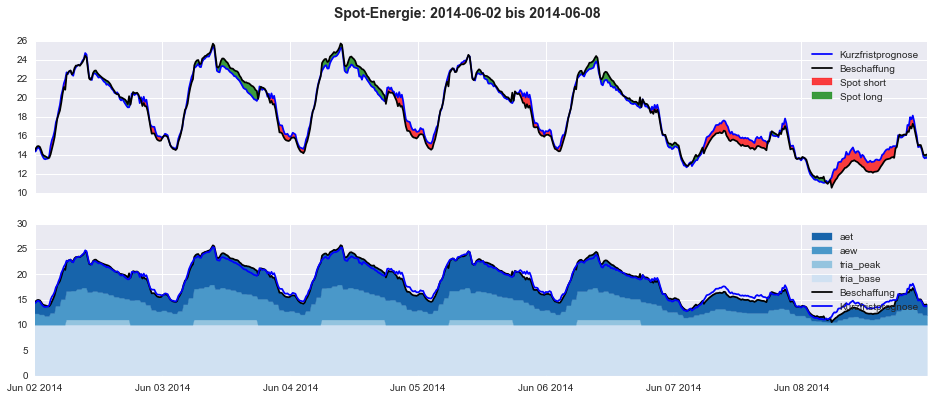Energy schedule
The FHNW School of Engineering has developed a useful tool to help distribution network operators cope with load management and energy procurement.
Energiefahrplan
Issues
Load Management; DER, Distributed Energy Resource, Battery Storage, Power to Gas
Objective
To gain a competitive advantage through optimised energy management.
Starting situation
With the deregulation of the electricity market, IBB needs to be able to continue to offer its customers competitive services and products at attractive prices. A further challenge is posed by renewable energies, which cause a high level of volatility in the power grid. This challenge needs to be addressed and turned to economic advantage.
Result
In the field of load management, reducing peak loads and smoothing the overall load profile were identified as targets for optimisation. This would relieve the burden on IBB's grid and reduce any incurred grid costs. Load management is implemented through a combination of measures: the ripple-controlled electric boilers were regrouped and the switching times optimised. Other resources, such as cogeneration units or pump stations for the water supply, whose operation has been optimised, can be controlled through IBB's control system.
Energy management is supported by a newly developed tool. Procurements with different profiles can thus be managed more efficiently and clearly visualised. Diverse calculated values allow a detailed assessment of the procurement situation. Periodically, current market data from the stock exchange is loaded and analysed, and the responsible parties are informed of any irregularities. The what-if analysis tool simulates monthly readjustments with regard to costs and the effects on the security of the supply before they are carried out. With the aid of a mathematical cost model for readjustments, the procurement with the lowest cost can be calculated automatically, taking risk tolerance into consideration.
By adjusting the load profile to that of standard products traded on the energy exchanges and thanks to cost-optimised adjustment, IBB can offer its customers the required energy under competitive conditions in the future.
Project information
Client | |
Execution | |
Partner | |
Funding | |
Team | Prof. Dr. Peter Gysel, Daniel Kröni, Prof. Dr. Andreas Vogt, Prof. Dr. Hannes Lubich, Dominik Link |

